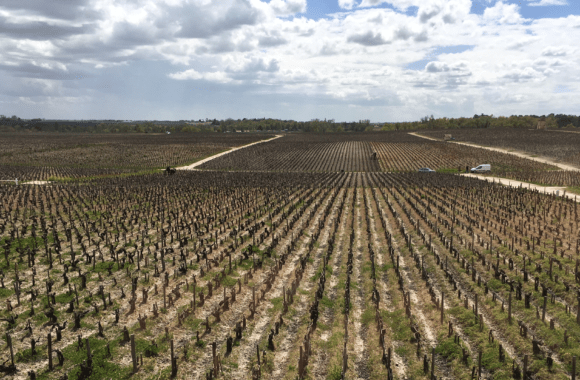
Talking Organic & Biodynamic
· Peter Mitchell MW Peter Mitchell MW on
Until 2012, no EU rules or definition existed for Organic Wine, meaning only grapes could be certified organic and wine could only be labelled as ‘made from organic grapes’. Although wine was frequently sold as ‘Organic’, this had no real meaning as there was no control once the grapes were harvested and the processing at thewinery had no obligation to being organic.
The 2012 legislation was the result of 8 years of bitter wrangling amongst member states, but it laid out a regulatory framework that finally allowed the term Organic Wine to be used, albeit the terms are not that strict. Many who have long practiced truly organic production have complained that these lax rules have allowed more cynical entrants to the organic market. It takes three years of proven adherence to get certification from various bodies, such as DEMETER, that are recognised by the EU. In the vineyard most chemicals are banned, with the exception of copper sprays allowed to help prevent rot. Compared to standard practices in the winery, sorbic acid is banned, as is desulfurication whilst the maximum permitted levels of SO2 in the finished wine are 50 mg/l lower than for non-organic wine. For many, the regulations are not nearly strict enough (for example cultured yeast can still be used and the permitted SO2 levels are still pretty high).
Biodynamics involves organic production, but adds another element. It is based upon the writings of Rudolph Steiner and involves treating the whole growing ecosystem as one. Treatments and procedures are carried out to an astrological calendar and many of these treatments contain a mystical element to them (such as burying cow manure in a cow horn over winter in the vineyard where it is said to harvest cosmic forces from the soil.) Sprays are applied in homeopathic quantities and no scientific evidence has been found to prove they have any effect, however adherents of Biodynamics claim that the quality of the fruit they get from Biodynamic vineyards is higher than that from traditional agriculture. Although some of Biodynamics may seem somewhat irrational, the basic principle of caring for the soil as much as for the plants is a good one that can only benefit the health of the final crop.
Many producers follow organics or biodynamics but choose not to be certified. This may be because they cannot be bothered with the bureaucracy (for example Castello dei Rampolla or San Leonardo in Italy) and the cost involved, or may be because they aren’t strict enough in their adherence to get certified. However there are many who have gone through with the process – and some may even surprise you. For example, you expect it of niche Italian wineries but two of the big adopters of biodynamics are Chateau Pontet-Canet and Climens in Bordeaux. Does it add anything? Well, Monsieur Tesseron at Pontet-Canet swears that it has elevated their wines to an echelon that never before reached. That certainly is a recommendation.





